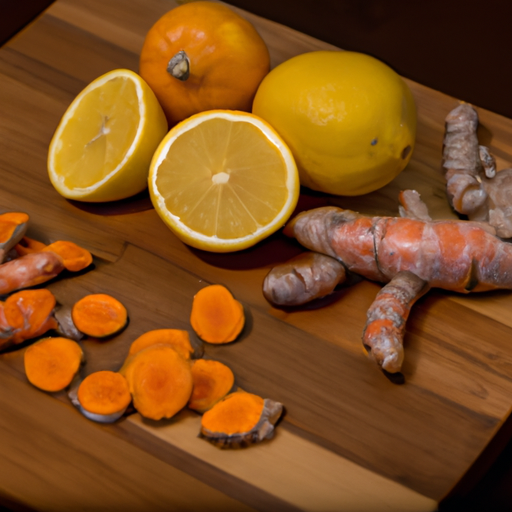So you’ve heard all the hype about echinacea tea and its amazing health benefits. It’s touted as a natural way to boost your immune system and fight off those pesky colds and flu. But here’s the twist – not everyone should be jumping on the echinacea tea bandwagon. In fact, there are some people who should steer clear of this herbal remedy.
Now, I know what you’re thinking. Why would anyone want to avoid something that’s supposed to be so good for you? Well, the truth is, echinacea tea may not be suitable for everyone. If you fall into any of the following categories, it’s best to give this herbal drink a miss.
Firstly, if you have an autoimmune disorder, echinacea tea could potentially worsen your condition. Similarly, if you have allergies to the Asteraceae family, which includes plants like ragweed and daisies, you may experience an allergic reaction when consuming this tea.
Pregnant or breastfeeding women should also be cautious, as there is limited research on the effects of echinacea tea on these individuals. Additionally, individuals with liver conditions or those taking immunosuppressant medication should avoid this herbal remedy.
Finally, children under the age of 12 and individuals with certain medical conditions should also refrain from drinking echinacea tea.
While echinacea tea may be a great option for some, it’s important to remember that it’s not a one-size-fits-all solution. So, before you take that first sip, it’s always a good idea to check with your healthcare provider to ensure echinacea tea is right for you.
Key Takeaways
- Individuals with autoimmune disorders should avoid echinacea tea as it can worsen their condition and interact with medications.
- People with allergies to the Asteraceae family may experience allergic reactions when consuming echinacea tea.
- Pregnant and breastfeeding women should be cautious as there is limited research on the effects of echinacea tea on them.
- Individuals with liver conditions should avoid echinacea tea as it can potentially worsen their condition.
People with Autoimmune Disorders
If you have an autoimmune disorder, you shouldn’t drink echinacea tea because it can potentially worsen your condition. Echinacea is known to interact with certain medications, such as immunosuppressants, which are commonly prescribed to individuals with autoimmune disorders. These interactions can interfere with the effectiveness of the medications and may lead to adverse effects.
Additionally, while echinacea is often touted for its immune-boosting properties, there’s limited scientific evidence to support its effectiveness in treating autoimmune disorders. Therefore, it’s important to consult with a healthcare professional before incorporating echinacea tea into your routine if you have an autoimmune disorder.
Moving on to individuals with allergies to the asteraceae family, it’s important to note that echinacea belongs to this plant family, which can cause allergic reactions in some individuals.
Individuals with Allergies to Asteraceae Family
Individuals with allergies to the Asteraceae family may want to avoid consuming echinacea tea. This is because echinacea belongs to the Asteraceae family, which includes plants like ragweed, chrysanthemums, and marigolds. People with allergies to these plants may experience cross-reactivity concerns when consuming echinacea tea.
Cross-reactivity occurs when the immune system mistakenly identifies similar proteins in different plants and triggers an allergic reaction. It’s important for individuals with Asteraceae allergies to be cautious because echinacea tea can potentially worsen their symptoms. If you have allergies to Asteraceae plants and are looking for alternative herbal remedies, it’s advisable to consult with a healthcare professional who can suggest suitable options that don’t pose the risk of cross-reactivity.
Moving on to the next section, let’s discuss the considerations for pregnant and breastfeeding women.
Pregnant and Breastfeeding Women
As a pregnant or breastfeeding woman, it’s important to consider the limited research on the safety of consuming echinacea tea.
While there are some potential benefits to using echinacea, there may also be potential risks to the fetus or infant.
It’s crucial to consult with a healthcare professional before making any decisions about consuming echinacea tea during pregnancy or while breastfeeding.
Limited Research on Safety
Although limited research on safety exists, it’s important to note that certain individuals may not be suitable candidates for drinking echinacea tea. While the long-term effects of echinacea tea consumption are not well understood, it is advised to proceed with caution.
Additionally, there is a potential for drug interactions when consuming echinacea tea, particularly with medications that affect the liver. It’s always recommended to consult with a healthcare professional before incorporating echinacea tea into your routine, especially if you’re taking any medications.
Moving forward, it’s crucial to consider the potential risks to the fetus or infant when consuming echinacea tea during pregnancy or while breastfeeding.
Potential Risks to Fetus or Infant
Pregnant or breastfeeding women should be cautious about consuming echinacea tea due to potential risks to the fetus or infant. Limited research has been conducted on the safety of echinacea tea during pregnancy and breastfeeding, so it’s important to exercise caution.
There is a concern that echinacea could have adverse effects on pregnancy, although the specific risks aren’t yet fully understood. Additionally, there is limited information on the potential effects of echinacea on breast milk composition, which could potentially affect the health and development of the infant.
Therefore, it’s advisable for pregnant or breastfeeding women to consult with their healthcare provider before consuming echinacea tea.
Moving on to the next section about people with liver conditions, it’s important to consider their specific health concerns.
People with Liver Conditions
People with liver conditions should steer clear of echinacea tea, as it could potentially worsen their condition and send them down a slippery slope. While echinacea tea is generally considered safe for most people, individuals with liver conditions need to exercise caution.
The liver plays a crucial role in metabolizing substances in the body, and any additional strain on the liver can be detrimental. Echinacea tea contains certain compounds that may affect liver function, leading to further damage in those who already have liver conditions.
It is important for individuals with liver conditions to consult with their healthcare provider before consuming echinacea tea or any other herbal remedies.
Next, we will discuss the potential risks for individuals taking immunosuppressant medication.
Individuals Taking Immunosuppressant Medication
If you’re taking immunosuppressant medication, it’s important to be aware of the potential risks associated with consuming echinacea tea. Echinacea tea has been found to interact with certain medications, including immunosuppressants, which can lead to reduced effectiveness of the medication. This is a concern because immunosuppressants are prescribed to suppress the immune system, and consuming echinacea tea, which is known to enhance the immune system, may counteract the intended effects of the medication. Therefore, individuals taking immunosuppressant medication should exercise caution when considering echinacea tea as a dietary supplement. It’s crucial to consult with a healthcare professional before incorporating echinacea tea into your routine to avoid any potential negative interactions. Moving on to the next topic, let’s talk about children under the age of 12 and their suitability for echinacea tea.
Children Under the Age of 12
For children under the age of 12, it’s essential to know that echinacea tea can be a flavorful and healthy addition to their daily routine. Echinacea has been traditionally used to boost the immune system and treat common colds and flu. However, it’s important to note that there are potential side effects associated with its use.
Some children may experience allergic reactions, such as rashes or difficulty breathing, when consuming echinacea tea. It’s crucial to monitor any adverse reactions and consult a healthcare professional if necessary.
Additionally, the efficacy of echinacea tea in treating common colds and flu in children is still being studied, and more research is needed to determine its effectiveness. Moving forward, it’s important to consider individuals with certain medical conditions when discussing the use of echinacea tea.
Individuals with Certain Medical Conditions
Individuals with certain medical conditions may need to exercise caution when incorporating echinacea tea into their daily routine. Echinacea tea is generally considered safe for most people, but it can have potential side effects and interactions with other medications.
It is important for individuals with medical conditions such as autoimmune disorders, tuberculosis, multiple sclerosis, and HIV/AIDS to consult with their healthcare provider before consuming echinacea tea. This is because echinacea can stimulate the immune system, which may worsen symptoms or interfere with medications used to manage these conditions.
Additionally, echinacea tea may interact with certain medications, including immunosuppressants and medications metabolized by the liver. It’s always best to speak with a healthcare professional to determine if echinacea tea is safe and appropriate for you.
Frequently Asked Questions
Can individuals with autoimmune disorders drink echinacea tea?
As someone with autoimmune disorders, I would advise against drinking echinacea tea. While it may have potential benefits, its efficacy for individuals like us is uncertain. Additionally, it may interact with medications used for autoimmune disorders.
Is it safe for individuals with allergies to the Asteraceae family to consume echinacea tea?
It is generally safe for individuals with allergies to the asteraceae family to consume echinacea tea. While they may be allergic to other plants in the family, echinacea allergies are rare and the tea can potentially boost the immune system.
What are the potential risks or side effects of drinking echinacea tea for pregnant and breastfeeding women?
Drinking echinacea tea during pregnancy and breastfeeding can have potential risks. It may affect autoimmune disorders. It is important to consult with a healthcare professional before consuming it in these situations.
Should people with liver conditions avoid consuming echinacea tea?
Pregnant women should avoid echinacea tea due to potential risks and side effects. It is also advisable for individuals with kidney disease to consult their healthcare provider before consuming echinacea tea to ensure safety.
Can individuals taking immunosuppressant medication consume echinacea tea without any adverse effects?
Individuals taking immunosuppressant medication should exercise caution when consuming echinacea tea as it may have adverse effects. It’s important to consult with a healthcare professional to determine if it is safe for you.
Conclusion
In conclusion, it’s crucial to be cautious when consuming echinacea tea. While it’s a popular herbal remedy, it isn’t suitable for everyone. People with autoimmune disorders, allergies to the Asteraceae family, pregnant or breastfeeding women, individuals with liver conditions, those taking immunosuppressant medication, children under 12, and individuals with certain medical conditions should avoid echinacea tea.
It may seem like a harmless beverage, but for these individuals, it could have serious consequences. Always consult with a healthcare professional before adding echinacea tea to your routine.










